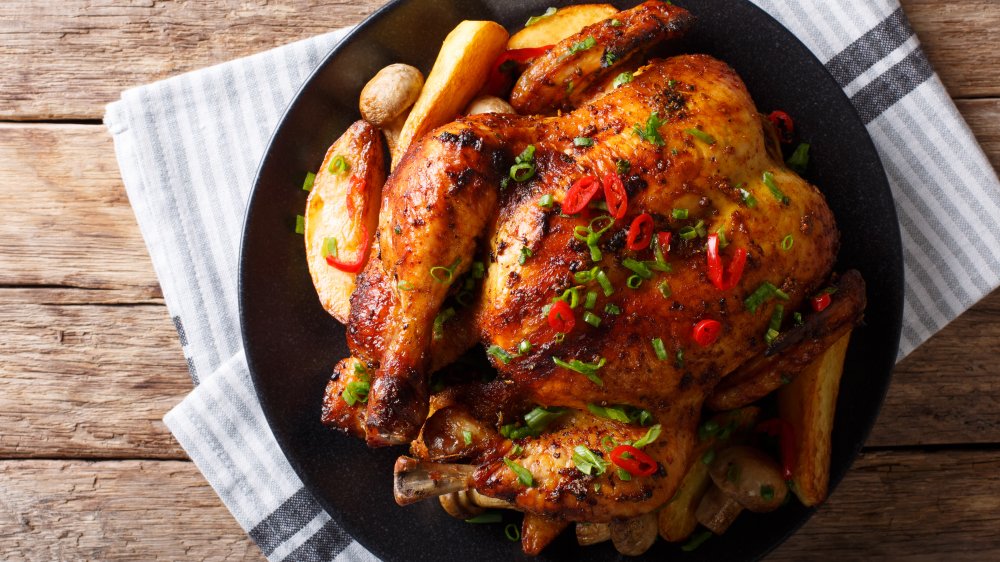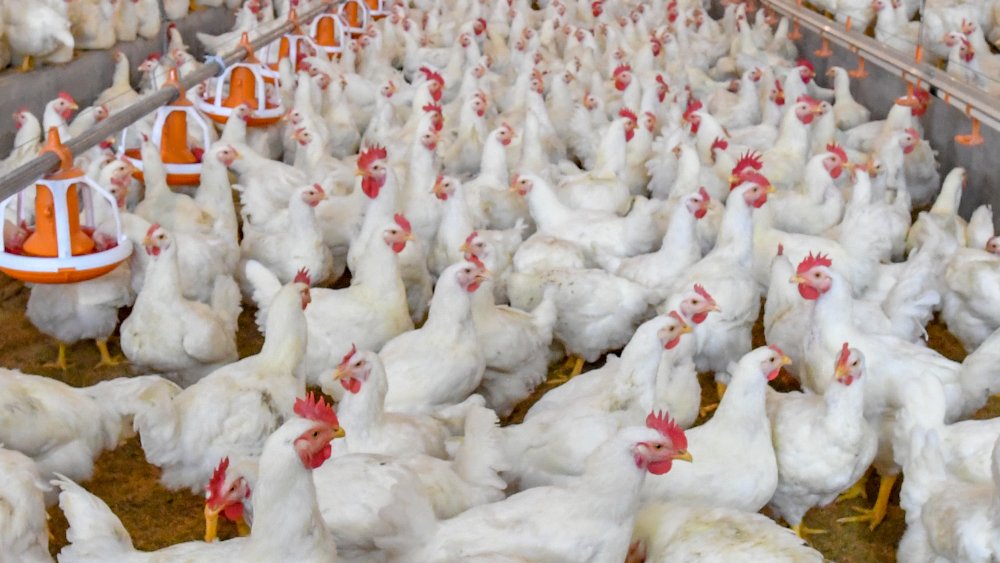The Real Difference Between Heritage Chicken And Grocery Store Chicken
When you order a heritage chicken instead of going to your local grocery store and buying their standard bird, the first thing you are likely to notice is the difference in price. According to Food & Wine, in 2017, these specialty birds cost around $9 per pound. Compare that to the average retail price of $1.47 per pound for a whole, fresh chicken in 2017 (via Statista), and you can probably see why some people were less than thrilled when they realized that a heritage chicken is actually a totally different type of bird from a grocery store chicken and not simply a higher-quality version.
Food & Wine states that this is because heritage chickens are a collection of breeds that are genetically different from grocery store chickens. Birds labeled heritage must be born from industry-regulated eggs. They have to be provided access to outdoor areas, where they are raised for at least 16 weeks and are allowed to reproduce naturally. The chickens you find in your grocery store, on the other hand, are bred to be fully grown in as little at six weeks and engineered to be kept primarily in cages. Production of grocery store chickens is way more concerned with efficiency than the quality of life for the animals.
You can't cook heritage chickens the same way you cook grocery store chickens
Heritage chickens look and taste different, too. Modern Farmer explains that these breeds of birds have smaller breasts and darker meat than grocery store chickens. Food & Wine states that the flavor of heritage chickens can be incredibly varied based on what the birds ate and what season they were slaughtered in, compared to grocery store chickens which pretty much all taste the same regardless of when you get them. The outlet describes the general flavor of a heritage chicken as strong and complex.
Want to try cooking a heritage chicken at home? Modern Farmer has some advice to help you get the most out of the pricey protein. They state that you will probably have to do a little research to find one, as most grocery stores in the United States do not sell heritage chickens at all. Once you find a farmer or butcher offering them, make sure to ask what age the bird you are buying is, as older and younger chickens need to be cooked differently. If your bird is older, they suggest stewing it or making a dish like coq au vin, which take longer to cook and give your chicken time to break down and become less tough. Regardless of your heritage chicken's age, Modern Farmer recommends cooking it "low and slow" with lots of moisture to fully experience the flavor these historic breeds have to offer.

